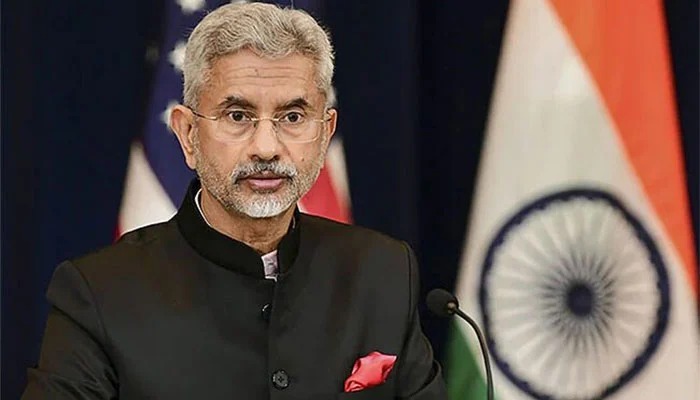Shankar dismissed rumors of international interference in India-Pakistan talks, emphasizing the renewed hotline as a direct and sovereign channel for dialogue

News Desk
NEW DEHLI: India’s External Affairs Minister, Jayant Shankar, has publicly acknowledged the role played by the United States in helping reduce tensions between New Delhi and Islamabad, offering rare clarity on the behind-the-scenes diplomacy that helped avert a deeper crisis in South Asia.
Speaking during a recent interview, Shankar addressed growing speculation about international involvement in the ongoing India-Pakistan dialogue, particularly in the wake of a recently activated hotline between the two countries. While he emphasized that communication between India and Pakistan remains direct and sovereign, he made it clear that Washington’s engagement was significant.
According to Shankar, Vice President J.D. Vence maintained contact with Prime Minister Narendra Modi during the critical phase of talks, while U.S. Secretary of State Marco Rubio was actively engaged in discussions with Indian officials. At the same time, American diplomatic channels remained open to Islamabad, with U.S. envoys reaching out to Pakistani leadership in a parallel track of communication.
The foreign minister was careful, however, to place Washington’s role within a broader international context. He noted that the U.S. was not acting alone, pointing to efforts from multiple nations who expressed concern and attempted to facilitate stability. “When two large and neighboring countries face friction, it is only natural for the international community to show interest and offer support,” he said, underlining the diplomatic norms that guide such interventions.
Despite these international efforts, Shankar was unequivocal in asserting that the ceasefire was ultimately the result of a direct agreement between India and Pakistan. “The decision to step back from the brink was ours to make. The ceasefire is a bilateral arrangement, shaped through our own channels and for our own regional interest,” he said.
His comments come at a time when both countries remain under intense scrutiny from their own citizens and from observers abroad, many of whom continue to question the stability of the fragile peace. The acknowledgment of U.S. involvement offers insight into the diplomatic balancing act being performed by New Delhi—reassuring domestic audiences of its sovereignty while recognizing the strategic value of international partnerships in de-escalating potentially volatile situations.



